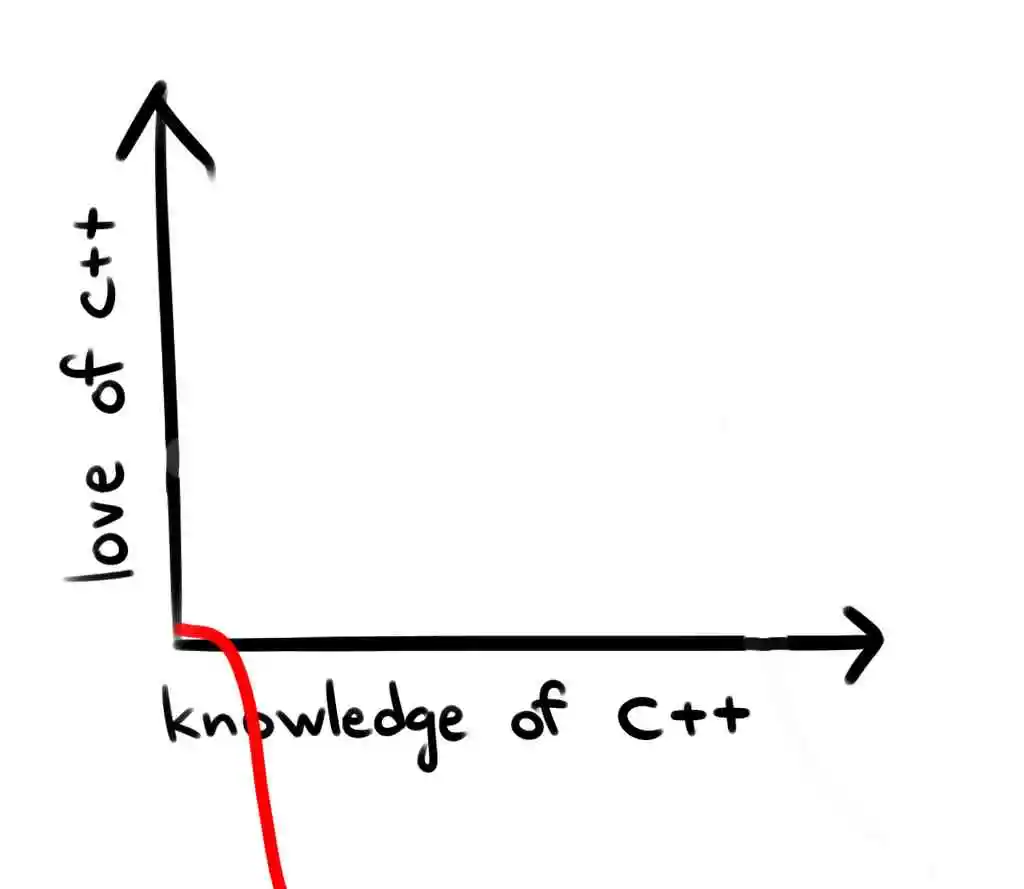this post was submitted on 08 Jun 2024
1046 points (98.5% liked)
Programmer Humor
19935 readers
988 users here now
Welcome to Programmer Humor!
This is a place where you can post jokes, memes, humor, etc. related to programming!
For sharing awful code theres also Programming Horror.
Rules
- Keep content in english
- No advertisements
- Posts must be related to programming or programmer topics
founded 2 years ago
MODERATORS
you are viewing a single comment's thread
view the rest of the comments
view the rest of the comments

I've been using C++ almost daily for the past 7 years and I haven't found a use for shared_ptr, unique_ptr, etc. At what point does one stop being a noob?
Given that you probably are using pointers, and occasionally you are allocating memory, smart pointers handle deallocation for you. And yes, you can do it yourself but it is prone to errors and maybe sometimes you forget a case and memory doesn't get deallocated and suddenly there is a leak in the program.
When you're there, shared_ptr is used when you want to store the pointer in multiple locations, unique_ptr when you only want to have one instance of the pointer (you can move it around though).
Smart pointers are really really nice, I do recommend getting used to them (and all other features from c++11 forward).
You’re recommending him to give up his sanity and/or life?
I would have said the same thing a few years ago, but after writing C++ professionally for a while I have to grudgingly admit that most of the new features are very useful for writing simpler code.
A few are still infuriating though, and I still consider the language an abomination. It has too many awful legacy problems that can never be fixed.
This guy probably still uses a char*.
What have you been using it daily for? arduino development? I’m hoping no company still lives in pre C++17 middle ages.
My company still uses c90. I just want to
for(uint8 i = 0;;)🥹C99 is better. Always will be.
Fight me.
C11 atomics
I recognize that trick question. For C++, the answer is always "soon".
well, if I have an object on the heap and I want a lot of things to use it at the same time, a shared_ptr is the first thing I reach for. If I have an object on the heap and I want to enforce that no one else but the current scope can use it, I always reach for a unique_ptr. Of course, I know you know all of this, you have used it almost daily for 7 years.
In my vision, I could use a raw pointer, but I would have to worry about the lifetime of every object that uses it and make sure that it is safe. I would rather be safe that those bugs probably won't happen, and focus my thinking time on fixing other bugs. Not to mention that when using raw pointers the code might get more confusing, when I rather explicitly specify what I want the object lifetime to be just by using a smart pointer.
Of course, I don't really care how you code your stuff, if you are comfortable in it. Though I am interested in your point of view in this. I don't think I've come across many people that actually prefer using raw pointer on modern C++.
I just never learned smart pointers and write C++ code like it's C for aesthetic reasons.
Best to join a C++ community on some social media then. They'll tell you immediately why "C with classes" isn't C++.
Do you still use raw pointers? You know they've discovered fire? (Jk coming from C I too havent learnt how to use smart pointers yet)
Shared poibters are used while multithreading, imagine that you have a process controller that starts and manages several threads which then run their own processes.
Some workflows might demand that an object is instantiated from the controller and then shared with one or several processes, or one of the processes might create the object and then send it back via callback, which then might get sent to several other processes.
If you do this with a race pointer, you might end in in a race condition of when to free that pointer and you will end up creating some sort of controller or wrapper around the pointer to manage which process is us8ng the object and when is time to free it. That's a shared pointer, they made the wrapper for you. It manages an internal counter for every instance of the pointer and when that instance goes out of scope the counter goes down, when it reaches zero it gets deleted.
A unique pointer is for when, for whatever reason, you want processes to have exclusive access to the object. You might be interested in having the security that only a single process is interacting with the object because it doesn't process well being manipulated from several processes at once. With a raw pointer you would need to code a wrapper that ensures ownership of the pointer and ways to transfer it so that you know which process has access to it at every moment.
In the example project I mentioned we used both shared and unique pointers, and that was in the first year of the job where I worked with c++. How was your job for you not to see the point of smart pointers after 7 years? All single threaded programs? Maybe you use some framework that makes the abstractions for you like Qt?
I hope these examples and explanations helped you see valid use cases.
When you bring threads into it, these exotic features make more sense. I have been doing single-threaded stuff for the most part.
Smart pointers are like pointers, but without the same burden of having to worry about memory leaks.